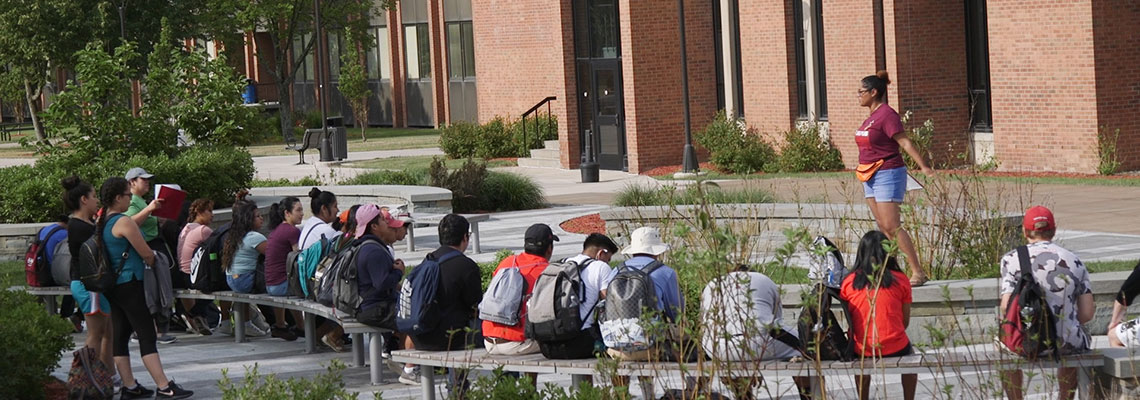
How METS Program Centers Serve
In New York State, eight regional Migrant Education Tutorial and Support Services (METS) Program Centers provide supplemental instructional and support services, including referrals, based on the needs of migrant children and their families and data analysis. Such programs and services are delivered one-on-one or in group settings, usually at homes, in schools, or other community-based locations. The intensity of such services for each migrant student depends on the number of risk factors associated with them, with the highest order of services provided to those identified as Priority for Services (PFS). Migrant Educators utilize a holistic approach of subject content and instruction, advocacy to self-advocacy, and identity development that is grounded in the trusting migrant educator-student-parent relationship.
Support Services
Support services are educationally-related activities (e.g., advocacy for migrant children, health, nutrition, counseling, transportation, educational supplies, etc.) designed to offer migratory children structure and support so that they can successfully engage in academic learning. Support services are provided in response to student and family needs that are identified and assessed annually, as well as in response to emerging or imminent needs. Recognizing that a student’s basic physical, safety, and emotional needs must be met first for learning to occur, local METS program centers consult and collaborate with a network of community service agencies and school districts to develop and implement individual learning plans for migrant children. METS Program Centers provide support services that focus on assisting migrant children and their families to develop the knowledge, skills, and behaviors to become successful self-advocates.
Instructional Services
Instructional Services refers to extended learning activities that supplement the core instruction provided by schools. Supplemental instructional services are intended to assist migrant students who are at risk of not achieving the State learning standards in English language arts, mathematics, social studies and/or science, or who are at risk of not gaining the knowledge and skills needed to meet or exceed designated performance levels on State assessments. They include culturally responsive push-in and pull-out tutoring and remedial help in different times and settings, including in-class, in-school, before or after school/extended day, in‐home, weekends, virtual, or in the summer, based on the needs of the migrant children and families involved and their availability. Beyond content teaching and learning that METS Program Centers provide, these supplemental instructional services also serve to foster clear and positive identity development and hold high expectations for themselves in society.
Identification and Recruitment
The New York State Identification & Recruitment Program (ID&R) was established by the Bureau of Migrant Education State Education Department in 1974. The aim of this project is to identify and recruit migrant children (0-22 years old) throughout the state for educational and support service programs offered by the New York State Migrant Education Program. ID&R is critical because, often, the most mobile children are the most in need, and the most difficult to find. The Migrant Education Program (MEP) is a federally funded program, authorized by Title 1, Part C of the Elementary and Secondary Education Act (ESEA). It was created to help migrant students, regardless of their nationality or legal status, succeed in their regular school program, attain grade-level proficiency, and meet challenging content and student learning standards that all children are expected to master. This program is free of charge to all eligible migrant students and services may include: tutoring, home visits, educational field trips, summer programs, parent involvement activities, emergency needs, and referrals to other services as needed.
Lunch Program
At the beginning of each school year the METS Program Centers send each school district a list of currently eligible migratory students. These students are categorically eligible for free lunch and breakfast without completing the application.
Students who receive migrant services through Continuation of Services are not categorically eligible for free lunch and breakfast. These students may qualify by completing the application from the school district.
NYS-MEP Video
Watch this short film, which was made to assist in effectively communicating the who, what, when, where, and how of the NYS-MEP and to inspire support and collaboration with schools, school districts, and community partners. It portrays a range of educational programs and support services provided and the migratory children and families that the program serves.
